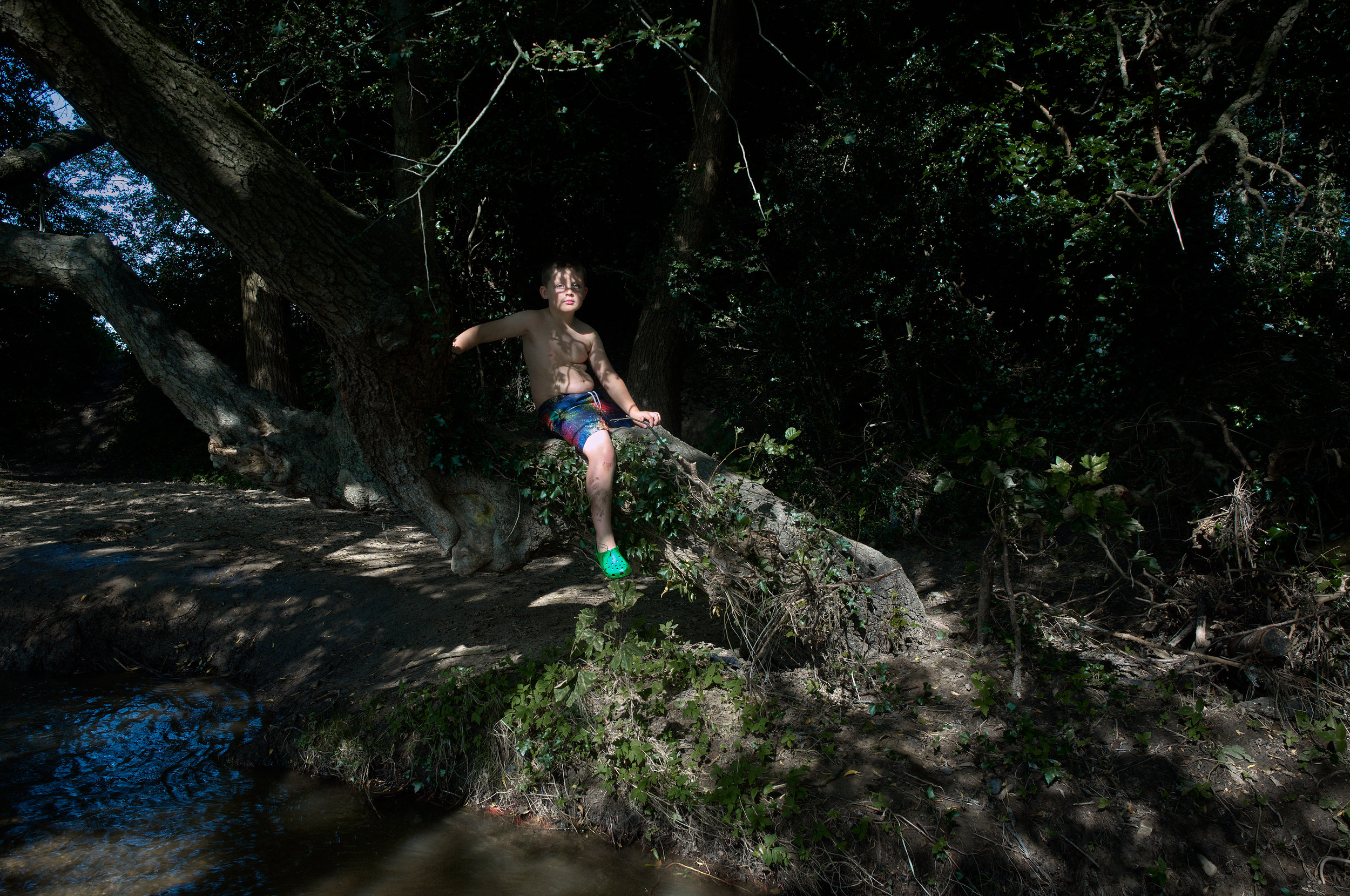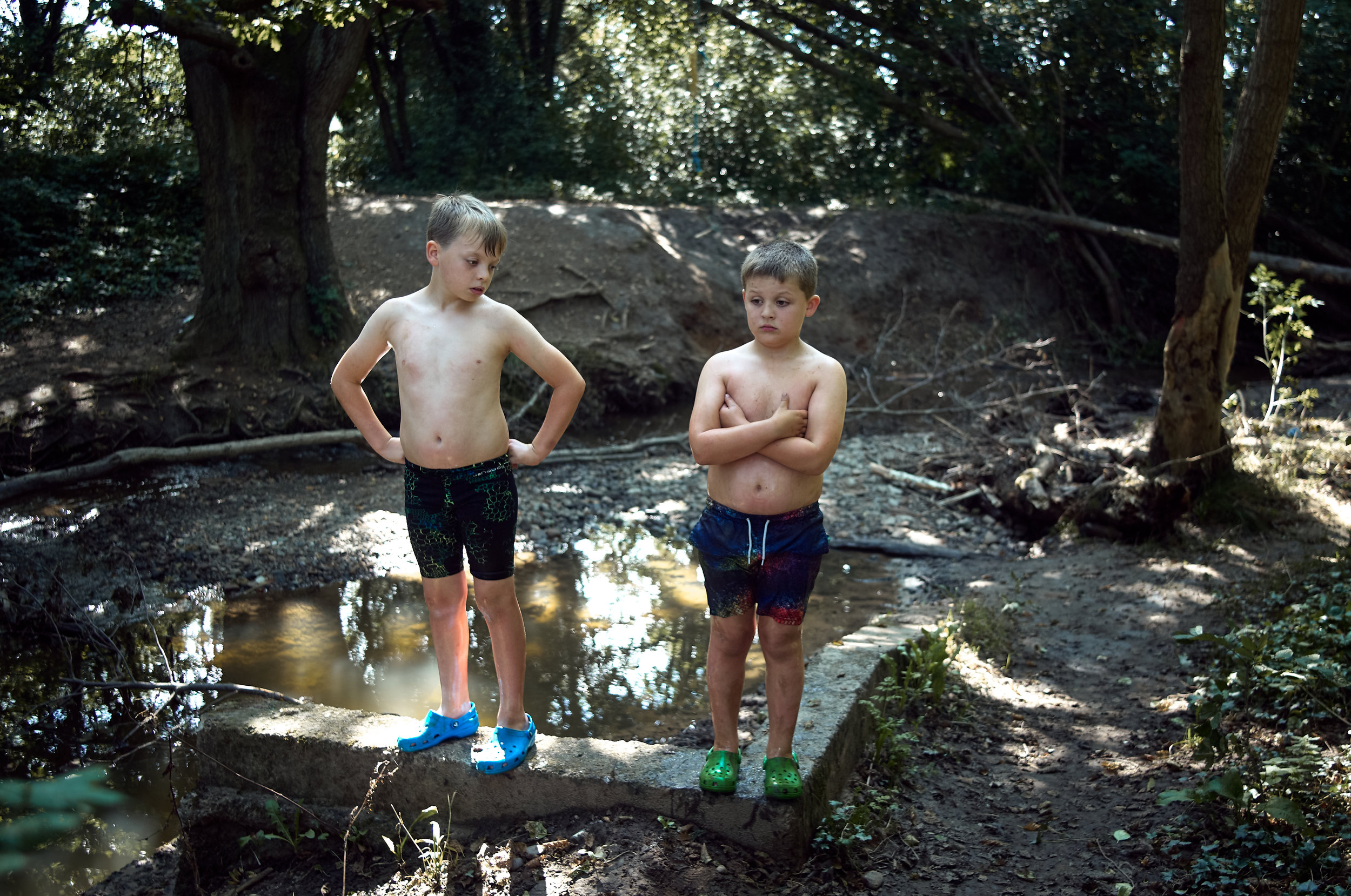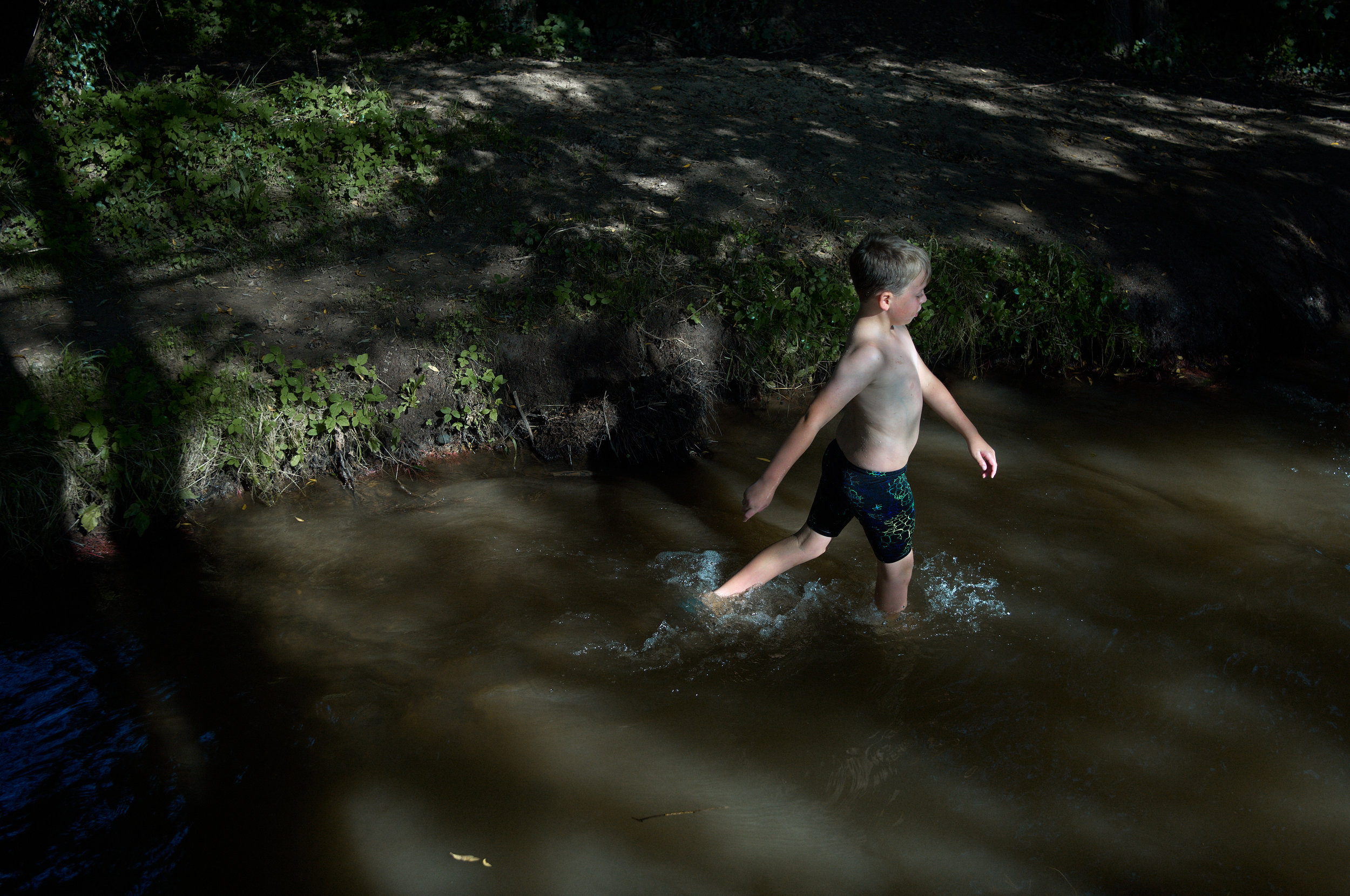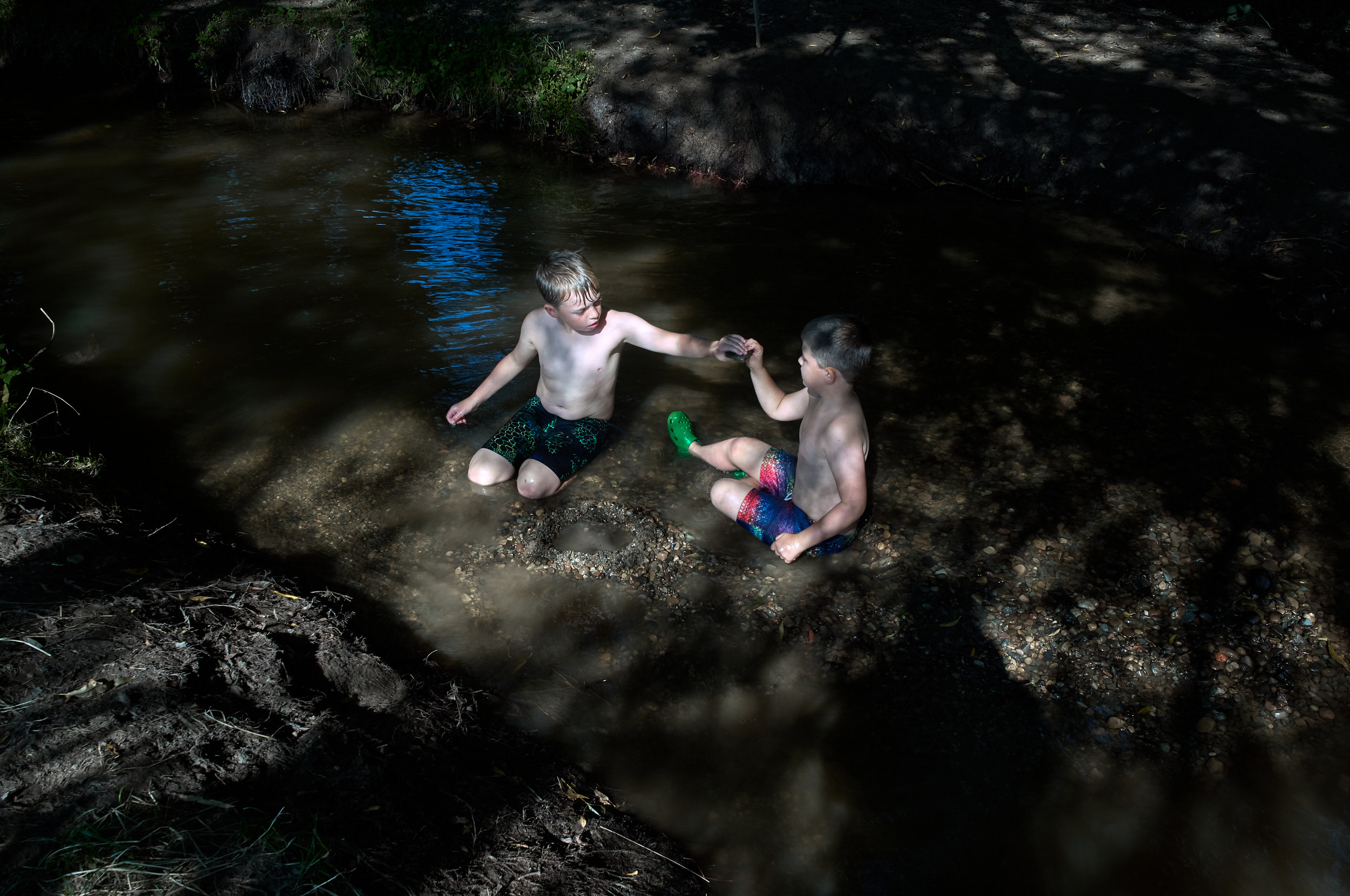It is day one of the holiday. I have driven to stay with my mother for a night on my way up to the Lake District with my two boys. It’s quite OK to make the drive in one hit (as I will be doing on the way home), but it’s much nicer to break it up and spend some time with mother in the house I grew up in.
As this is the first day of a week of boys’ own adventures, most of which will almost certainly be spent swimming in the waters of Lake Windermere, it seems only proper to spend the day getting wet. A thin ribbon of babbling water runs through the top end of the estate I grew up on. It’s an otherwise unassuming body of water, hardly noteworthy. Its source is the runoff rainwater from Bow Stones Gate in the High Peak, a local landmark that I was always led to believe marked the graves of two plague victims from the 17th Century. The rain soaks into the grassy flank of Park Moor, Bakestone Moor and Dale Top and seeps down through underground runnels of peat and channels cut into hill side to collect in the basins around Wood Green and Booth Green. From there it is joined by more run-off from the Macclesfield Canal and then winds its way through Wood Lanes and The Coppice and Wardsend until it butts into the north end of the estate. When I first moved to Poynton, that area was all farmer’s fields.
Under normal circumstances Poynton Brook is about as benign a body of water as you can find but just recently following a deluge of rain, more in two days than has been seen before in many months, the stream graduated to a river, promptly burst its banks and then graduated to becoming an outright menace.
Less than ten days later the waters have subsided and Poynton Brook is back to its meek meandering self, It twists and turns through the sandy ground making mini deltas that then form small islands. These islands were the scene of many an improvised pirate adventure. We would strap wooden pallets together that we found ‘abandoned’ from the local industrial estate, combing them with empty barrels, lashed together with old bits of rope and twine that we either borrowed from our parents or else scavenged from the ground. Onto these precarious rafts we would then tentatively climb, our small bodies twisted into acute angles in a vain attempt to find our balance. A helpful shove would launch us into the deeper deltas and we would spend a few vainglorious moments deftly balanced between the reality of an improbably floating raft, prophetically made from flotsam and jetsam, and the fantasy of an admiral commanding on a full rigged British frigate, bristling with cannons, flying the White Ensign and sailing on the high seas to treasure and adventure.
We used to fish with our bare hands in this stream. Teams of us would find a good spot in the shade where Bullheads would hide under stones. We would squat down on our haunches in the water and gently lift the larger stones. If you were really careful the Bullhead would remain undisturbed on the silt bed, comforted by the shade. It was almost impossible to do this; most of the time the fish would immediately sense the movement of the water and dart away to another hiding place. With quick eyes you could follow their path and so move from rock to rock, playing a game of cat and mouse until you finally were able to lift a rock without disturbing the fish. Catching the fish, which were only about as long as your thumb, with your hands was even trickier but there was a successful method for doing this. This involved placing your cupped hands some distance from the fish and generally oriented fore and aft of the head and tail, and then slowly bringing them together until, if you were careful and terribly quick at the last minute, you could snap your hands together into a cup and have the fish trapped inside. From there we transferred them into buckets and from the bucket perhaps we let them go or, perhaps as small boys are want to do, we used them for dissection.
Nature wasn’t always on the back foot with us though; sometimes the leeches and lampreys that could also be found in the brook caught us rather than us them.
The thick foliage that lined the banks also made for great dens. The trees would grow over into a sort of bower and made natural clearings inside them that were unseen from the outside. I had my first kiss inside one such den, the Holly Bush Den as the girl and I who found it had called it. As we grew older we would make fires from the dead wood that was easily found, pretending to be living in the wild and scavenging for food. We would toast bread on sticks and marvel at the wood smoke flavour it would have as a result. We would wander farther afield, onto the southern side of the shore in search of rope swings, thickets to hide in, trees to climb and old outbuildings to make into fortified camps for use in wide games. It’s marvellous to think now about just how far we would roam at such young ages. I am sure, because I can date the events to specific years of primary school, that at the age of ten I would be happily several miles, numerous farmer’s fields and at least a dozen water crossings away from home.
At what point did we stop letting our children roam so freely?









